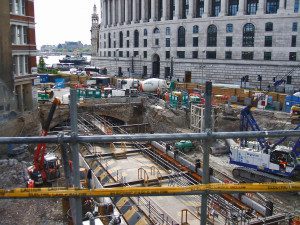

According to Liker, a famous philosopher, waste is defined as the opposite of value where value is any process that a customer is willing to pay for. Waste is also used in reference to resources that add negligible or no value to the final product. Waste is therefore loss of resources including time, materials, equipment, labor and capital, when these resources are produced by activities that contribute to the final cost but do not add value to the final product.
In the construction industry, after the design is agreed upon, most of the value adding usually occurs at the site. Activities that add value are assembly, packaging and finishing. Other activities such as moving, counting, storing, scheduling and sorting can therefore be said to be wasteful.
Unfortunately, research blames the supply chain for most of the wastes in the construction industry. One report went as far as saying that wastes in the construction industry are mainly caused by “obsolete, myopic control” of the supply chain.
What is materials logistics and how can it help?
Delivering materials to the construction site is one of the most important activities in the entire construction process. It directly affects productivity and therefore needs to be monitored from early days to ensure control of material flow. For example, the time you spend loading material could have been used in more constructive activities. Then you also need to store this material. Does the storage add any value to the production process? No.
Material logistics is defined as the art of moving, lodging and delivering troops and equipment. It is an interface between parties and involves planning, co-ordination, organization and control of the flow of construction material for the whole supply chain (from sourcing for raw materials to the finished project). If implemented correctly, material logistics alone can save you at least 5% of the total cost of construction.
Much of the savings are usually realized through reduction in material wasted as well as early completion of projects. Benefits also include reduction in absence and an increased satisfaction of craftsmen. There are usually also fewer delays on the site, a stabilized work flow and generally less wastage.
Materials logistics ideas for the construction industry
- Every construction company should have a special material logistics expert who should be allowed to plan the logistics from very early in the construction. This will encourage competitiveness and strengthen buyer-supplier relationships.
- Planning and structuring should be done with focus on enhancing logistics to increase value of work while cutting out wastages.
- Effort should also be put in matching the right products and methods with the right people.
- It has been discovered that utilizing the strengths of every organization in the supply chain, a win-win philosophy and developing a long-term perspective are critical in gaining a competitive advantage.
- The construction industry, in its quest to adopt logistics at every level of work, must learn and take inspiration from other industries. For example, the extensive success already demonstrated by the automotive industry can be a great source of inspiration.
Materials logistics is an approach that will take construction managers out of their comfort zones, but one that promises unrivaled efficiency and cost-effectiveness. It is always worth a try.


